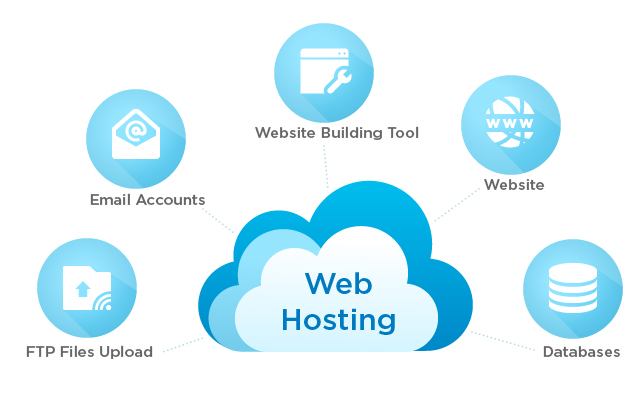
Have you been considering starting up a business and launching a website to get the ball rolling? Have you planned out proper web hosting, domain name indexing, registering a FQDN, network topology, and third-party design implementation? If you became lost anywhere along that list, you may want to read this article before you proceed.
Be sure to check the amount of space you will be given from your host. Some web hosts only offer 1GB of free space, while others offer much more. Especially for free sites, the more space you use, the more limited your account will become until you start paying for it.
It is important to determine your needs prior to shopping for a web hosting service. There are numerous packages you can choose from that vary significantly in price. Some of the factors you should consider include the amount of bandwidth you need, how much disk space you require, and the types of databases offered. Knowing your requirements in a web host will make it much easier for you to select a hosting package.
When choosing a web host, you should ensure that you choose one that has lots of features for you to utilize. Although the features of most hosts will be very similar, they will differ in their bandwidth and disk space. If you are in need of a large amount of these two things, then you should ensure that you select a web host that provides this.
Choose a web host that charges a low monthly fee. You can usually find a quality web host for between $5 and $10 per month. You may also be able to save money by paying for 12, 18 or 24 months of service at one time, instead of paying for web hosting services on a monthly basis.
Never select free web hosts simply because they’re free. They typically require you to advertise on your site. You can’t filter ads for objectionable content or even websites that compete with your business. Also, these random ads placed on your site give it an unprofessional look and feel.
Always get a pricing breakdown for you hosting package. You will need to include hosting fees as part of your website’s budget. By knowing exactly what your monthly fees are covering, it will allow you to budget any factors that may be relevant, such as time, bandwidth and data. Inspect the terms closely for any fees that may be incurred and should be budgeted as a precaution.
Find out if the web host you are considering offers a trial period. A trial period is a great way to identify potential issues, particularly whether there will be any downtime. It also gives you an opportunity to test the level of expertise and responsiveness of their customer service. You should take advantage of the trial period prior to making any kind of commitment.
Look for a web host that lets you create your own customized error pages. In case your site is not accessible, you will be able to apologize to your visitors and perhaps redirect them to your Facebook page. Instead of getting frustrated at the usual error message, your visitors will appreciate you apologizing to them.
Choose a web host that does not require you to sign a 12-month contract or charge a cancellation fee. You need the flexibility to change to another web host if you find that your current host is not working out for you. A month-to-month arrangement is usually better for the first year or two of your hosting.
Before you decide on a web host, examine your needs carefully. Subscription rates and features vary widely among web hosts. For instance, if you do not need e-commerce, there is no point in paying extra for a hosting plan that includes that feature. You need to know what type of content you will publish on your site in order to find the right web host that offers the features that you need.
Keep track of your sales and traffic so you can find out when people are on your site. If you notice a time of the day where you get more visits, you should look carefully as the uptime advertised by your web host. If most of the down time occurs during your rush hour, look for another service.
If you plan to conduct e-commerce on your website, choose an e-commerce hosting plan that includes shopping cart set-up. Installing your own shopping cart script can be very tricky and time-consuming. If you are unfamiliar with it, many things can go wrong that can jeopardize the security of the transaction. So it is best to go with a plan that includes shopping cart installation.
Be aware of what type of storage the web host offers. This is only relevant for certain site owners, though. If you have a site that requires a lot of videos and music, then you need to ensure the host offers the space necessary. Decide how much space you need in advance to ensure you are getting a host that supplies you will just what you need.
If your website is heavy on graphics, such as photography or art, then look at the image size of files that can be uploaded. This is very important, and you do not want to be surprised to learn that the plan you choose limits sizes or number of images allowed.
Web hosts have to update their servers regularly and your site will be unavailable when this occurs. Look for a service that lets you know in advance when your site will be down and which updates their servers at a time of the day where you are not getting a lot of visits.
Now, you might very well be able to revisit the first list and have a better understanding of the things mentioned. You now have a powerful grasp on a concept that remains a huge factor in many careers pursued via the Internet. This bit of information will not only protect you from making poor decisions in the future, but help increase profits along the way.

